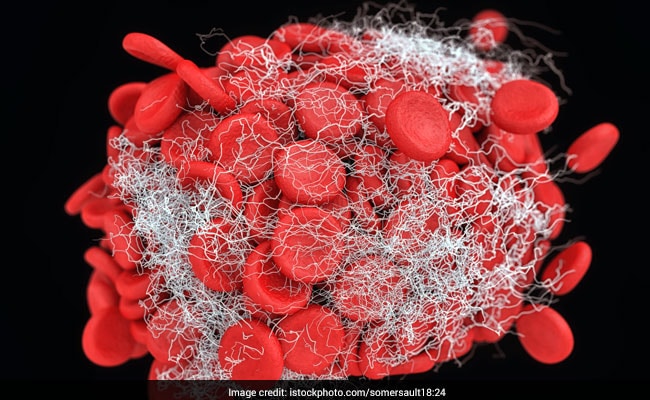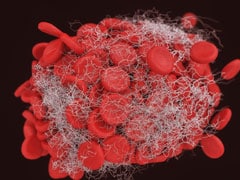Scientists in Stanford University have found out a different molecule CD22, which can be targetted against genetically modified T-cells in CAR T-cell therapy - as an effective treatment for leukaemia.

The therapy is similar to CD19-targeted chimeric antigen receptor T-cell therapy.
HIGHLIGHTS
- CAR T-cells therapy can genetically modify T-cells to CD22 molecule
- This is an exciting news for leukaemia treatment, say experts.
- Doctors still await potential data to comment on viability of CD22.
In what can be termed as "exciting" news for leukaemia treatment, scientists in Stanford have identified a molecule that can be targeted to this most common form of cancer in childhood.
Generally, leukaemia refers to cancer of the White Blood Cells (WBCs), which are a vital part of the body's immune system. They protect the body from invasion of bacteria, viruses, and fungi and various other foreign substances. However, if a patient has leukaemia, then WBCs don't function the way they normally do. Instead, they divide too quickly and eventually crowd out normal cells.
Acute lymphoblastic leukemia (ALL) has been treated with Chimeric antigen receptor (CAR) therapy. Several years ago, CD19 was identified as an attractive target for CAR therapy for most B-cell malignancies, including ALL.
So far, leukaemia was treated by a chimeric antigen receptor T-cell therapy, or CAR T-cell therapy, in which patient's T-cells are genetically modified to target a molecule called CD19 on the surface of the cancer cells.
Now, after the Stanford discovery, this therapy can genetically modify a patient's T cells to a different molecule called CD22. This therapy was recently approved by the US Food and Drug Administration (FDA) for the treatment of some types of blood cancers, according to a study published in the journal Nature Medicine.
"There is a lot of data on CAR T-cells against CD19 which is very viable. CD22 is still fairly new and we await substantial data to comment on the credibility of this molecule. But yes, it would be one additional treatment. Those patients who fail CD19 CAR T-cell therapy can benefit from CAR T-cells against CD22. It is definitely exciting that one more treatment has come up for leukaemia," says Dr Satya Prakash Yadav.
For patients who undergo CD19-targeted CAR T-cell therapy and stop expressing the CD19 molecule on their cell surfaces, this approach can be very useful.
CAR T-cell therapy relies on a patient's own T cells, which is a type of immune cell that can be a powerful killing machine.
In the Nature Medicine study, 15 out of 21 patients either relapsed or failed to respond to anti-CD19 CAR T-cell treatment. And at the lowest dose level, 1 in 6 patients achieved complete remission after treatment with the anti-CD22 CAR T-cells.
However, when the researchers escalated the dose to a level above in the study, 11 of 15 patients, or 73 per cent, entered remission.
Now, scientists are further hoping that that targeting CD19 and CD22 simultaneously may result in a powerful therapy - one that cancer cells are unable to evade.
(With inputs from PTI)
(Dr Satya Prakash Yadav is Director, Department of Haemotology and Medical Oncology, Medanta)
Disclaimer: This content including advice provides generic information only. It is in no way a substitute for qualified medical opinion. Always consult a specialist or your own doctor for more information. NDTV does not claim responsibility for this information.
DoctorNDTV is the one stop site for all your health needs providing the most credible health information, health news and tips with expert advice on healthy living, diet plans, informative videos etc. You can get the most relevant and accurate info you need about health problems like diabetes, cancer, pregnancy, HIV and AIDS, weight loss and many other lifestyle diseases. We have a panel of over 350 experts who help us develop content by giving their valuable inputs and bringing to us the latest in the world of healthcare.














